Audit Exam 1 - 2022 Questions and Correct Answers
Document Content and Description Below
Audit Exam 1 - Multiple Choice 2022 Questions and Answers Auditors accumulate evidence to A) defend themselves in the event of a lawsuit. B) determine if the financial statements are correct. C) sati... sfy the requirements of the Securities Acts of 1933 and 1934.D) reach a conclusion about the fairness of the financial statements. - Ans-D In the auditing process.... A) the types and amounts of evidence remain constant from audit to audit. B) the criteria for evaluating information will not vary depending on the information being audited. C) the audit report communicates the auditor's findings to users. D) records are gathered by the auditor to determine whether the audited information is stated in accordance with SEC standards. - Ans-C Which of the follow is considered audit evidence? A) Oral statements made by management, but not written communications or auditor observation B) Written communications and auditor observation, but not oral statements made by management C) Oral statements made by management, written communication, and auditor observation D) Auditor observation, but not oral statements or written communication - Ans-C Which of the following can be used as a criteria for evaluating information being audited? A) International Financial Reporting Standards (IFRS) B) Generally Accepted Accounting Principles (GAAP) C) Internal Revenue Code (IRC) D) all of the above - Ans-D Recording, classifying, and summarizing economic events in a logical manner for the purpose of providing financial information for decision making is commonly called A) finance. B) auditing. C) accounting. D) economics - Ans-C An accountant A) must possess expertise in the accumulation of audit evidence. B) must decide the number and types of items to test. C) must have an understanding of the principles and rules that provide the basis for preparing the accounting information. D) must be a CPA. - Ans-C When auditing accounting data, auditors focus on A) determining whether recorded information properly reflects the economic events that occurred during the accounting period. B) determining if fraud has occurred. C) determining if taxable income has been calculated correctly. D) analyzing the financial information to be sure that it complies with government requirements. - Ans-A The trait that distinguishes auditors from accountants is the A) auditor's ability to interpret accounting principles generally accepted in the United States. B) auditor's education beyond the bachelor's degree. C) auditor's ability to interpret FASB Statements. D) auditor's expertise in the accumulation and interpretation of audit evidence - Ans-D ________ risk reflects the possibility that the information upon which the business decision was made was inaccurate. A) Client acceptance B) Information C) Business D) Control - Ans-B The possibility that a business may not be able to repay a bank loan because of an economic downturn is referred to as A) materiality risk. B) information risk. C) interest rate risk. D) business risk - Ans-D True or false: Auditing can have a significant effect on both information risk and business risk - Ans-False [Show More]
Last updated: 2 years ago
Preview 1 out of 79 pages

Buy this document to get the full access instantly
Instant Download Access after purchase
Buy NowInstant download
We Accept:

Reviews( 0 )
$40.00
Can't find what you want? Try our AI powered Search
Document information
Connected school, study & course
About the document
Uploaded On
Oct 02, 2022
Number of pages
79
Written in
Additional information
This document has been written for:
Uploaded
Oct 02, 2022
Downloads
0
Views
105

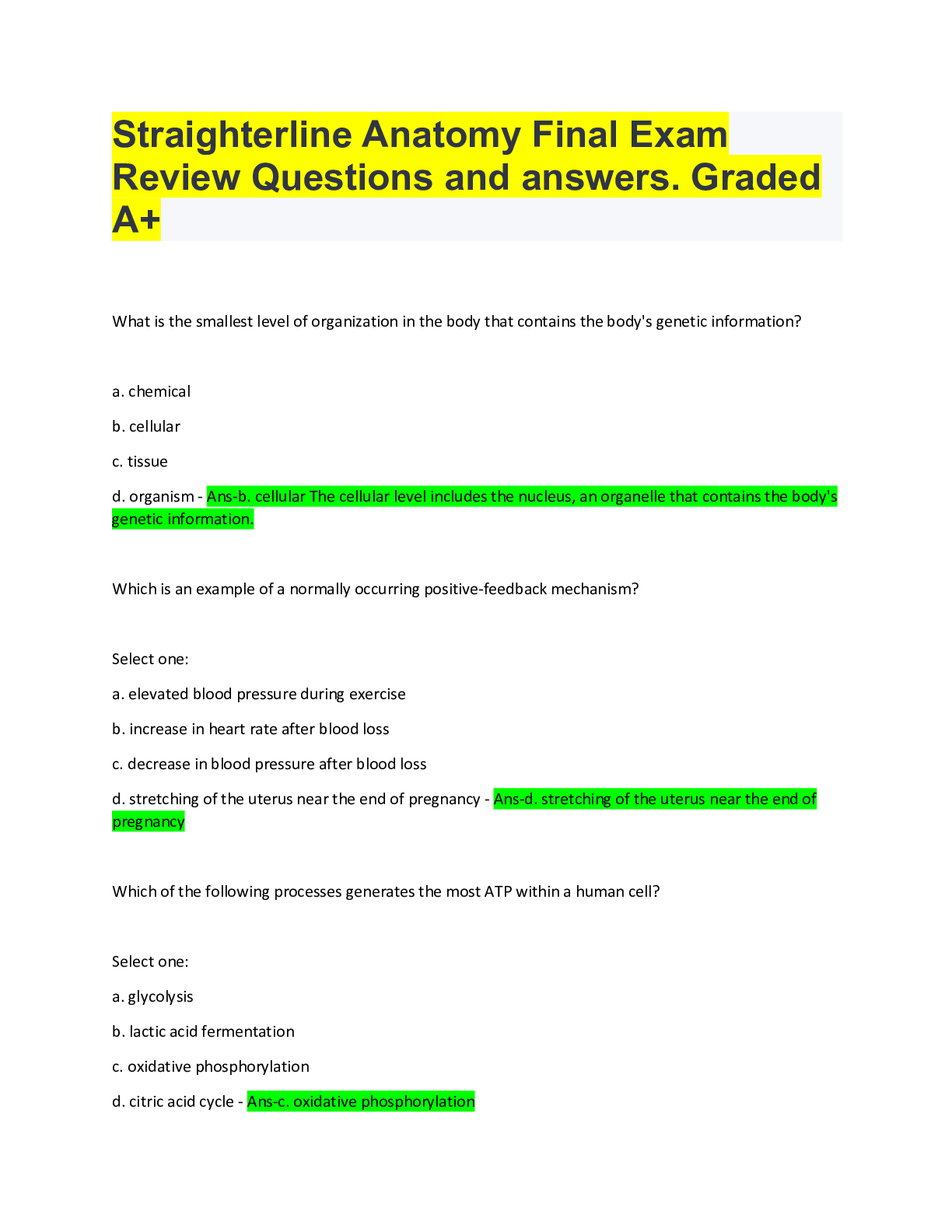
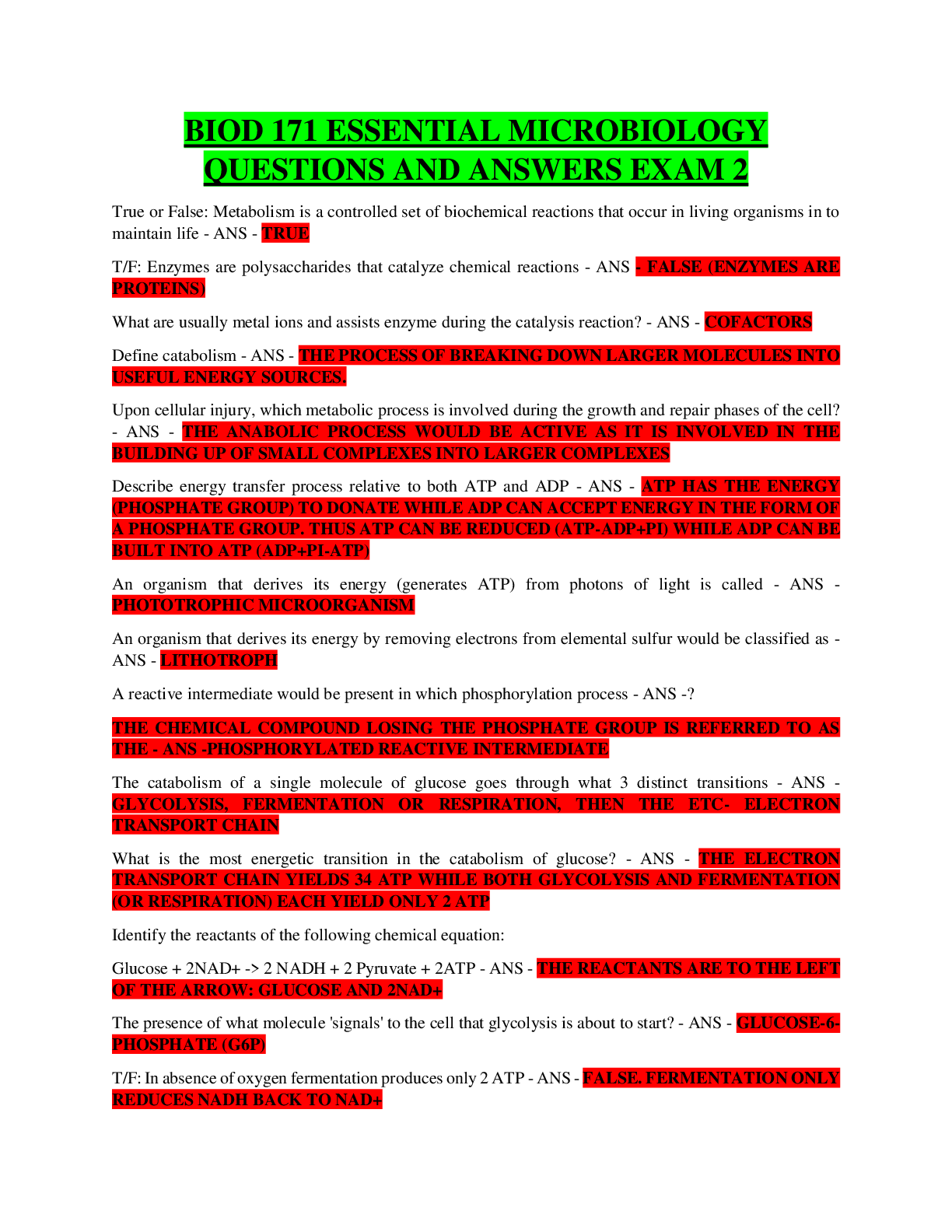
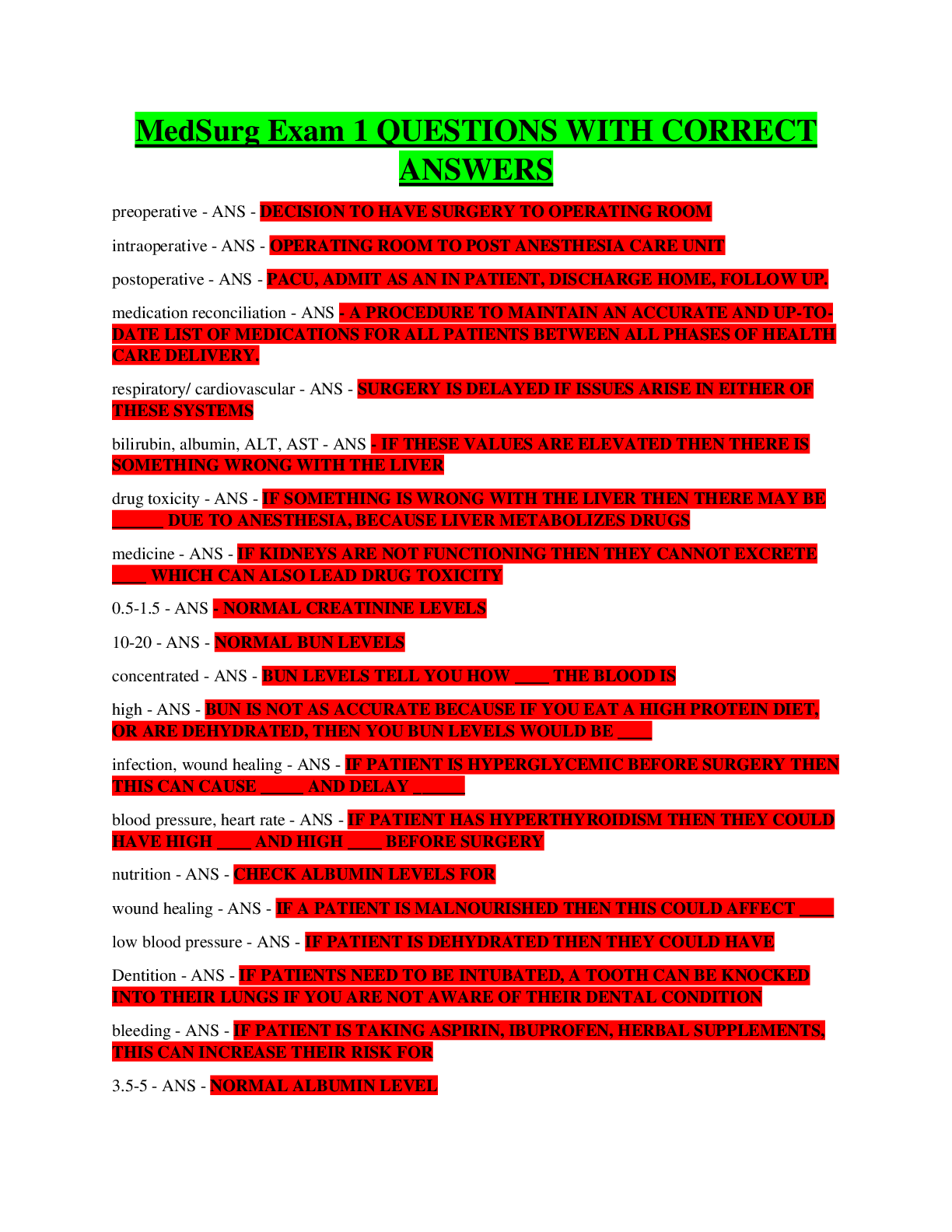

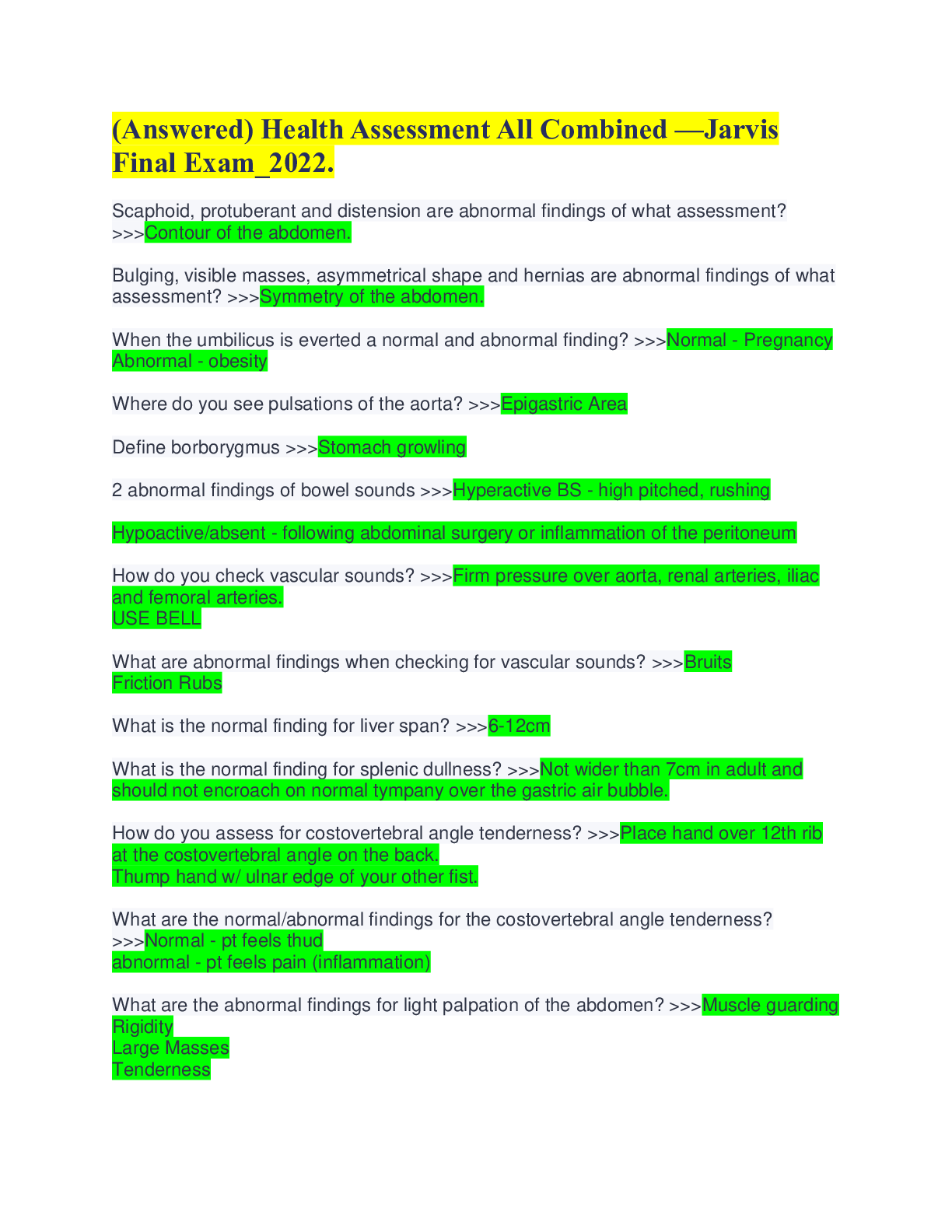

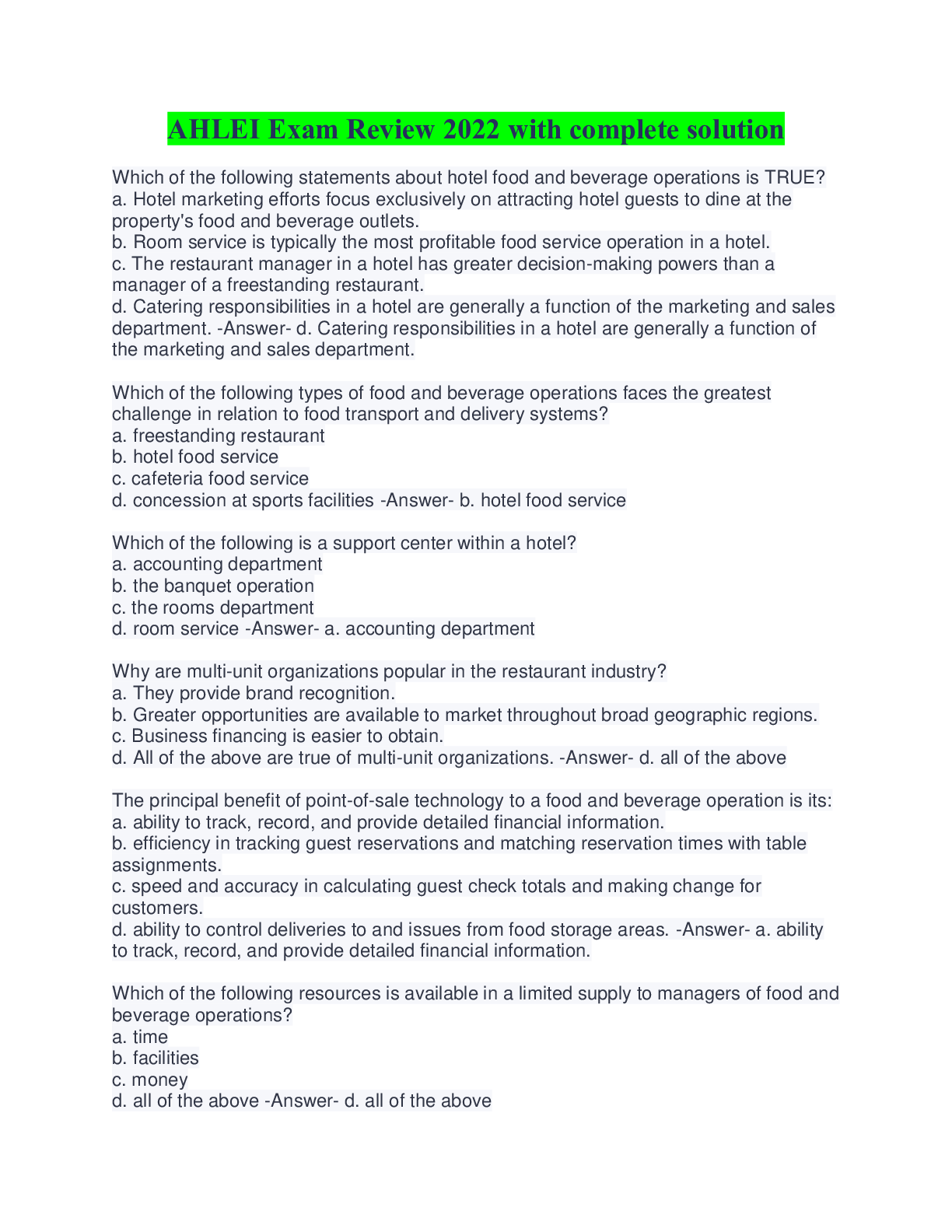

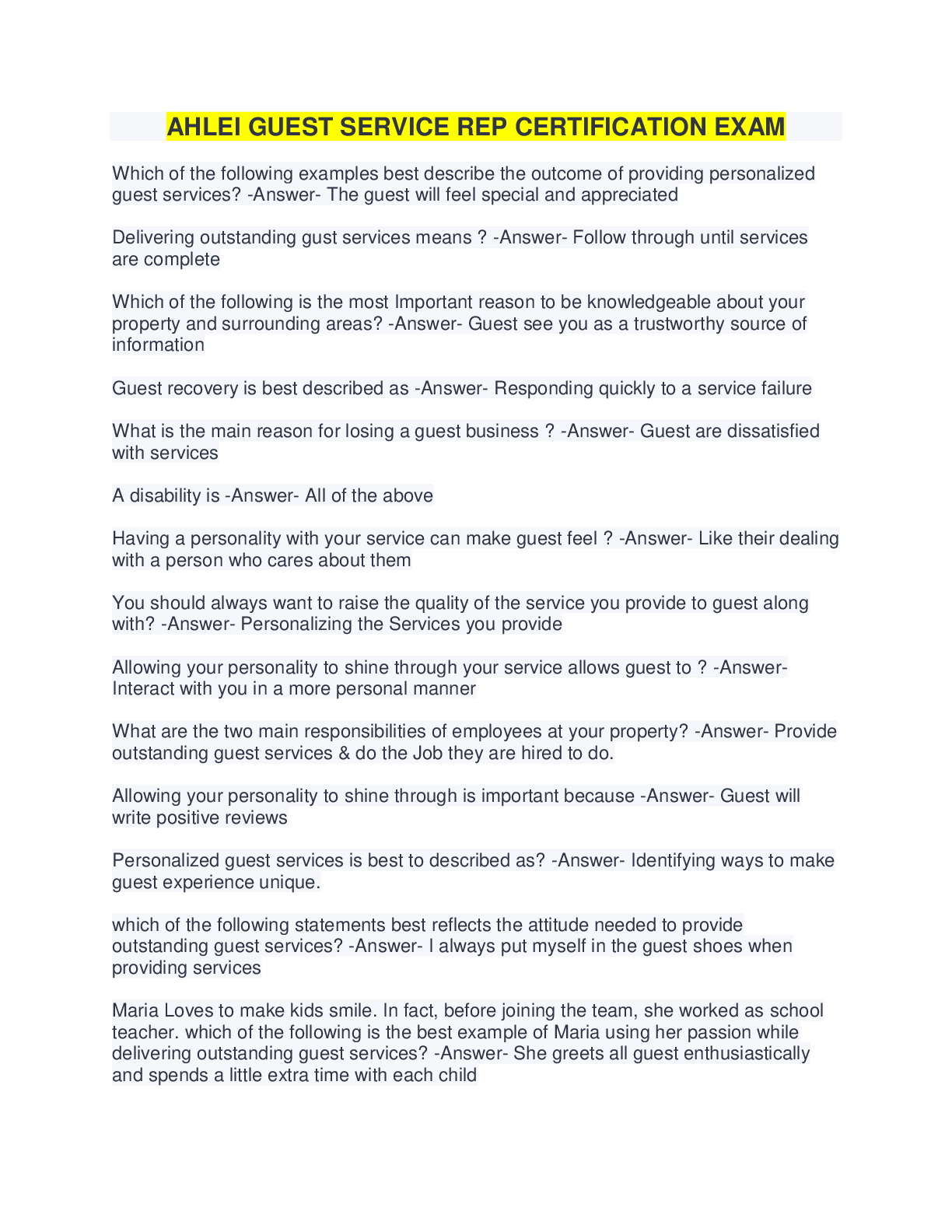
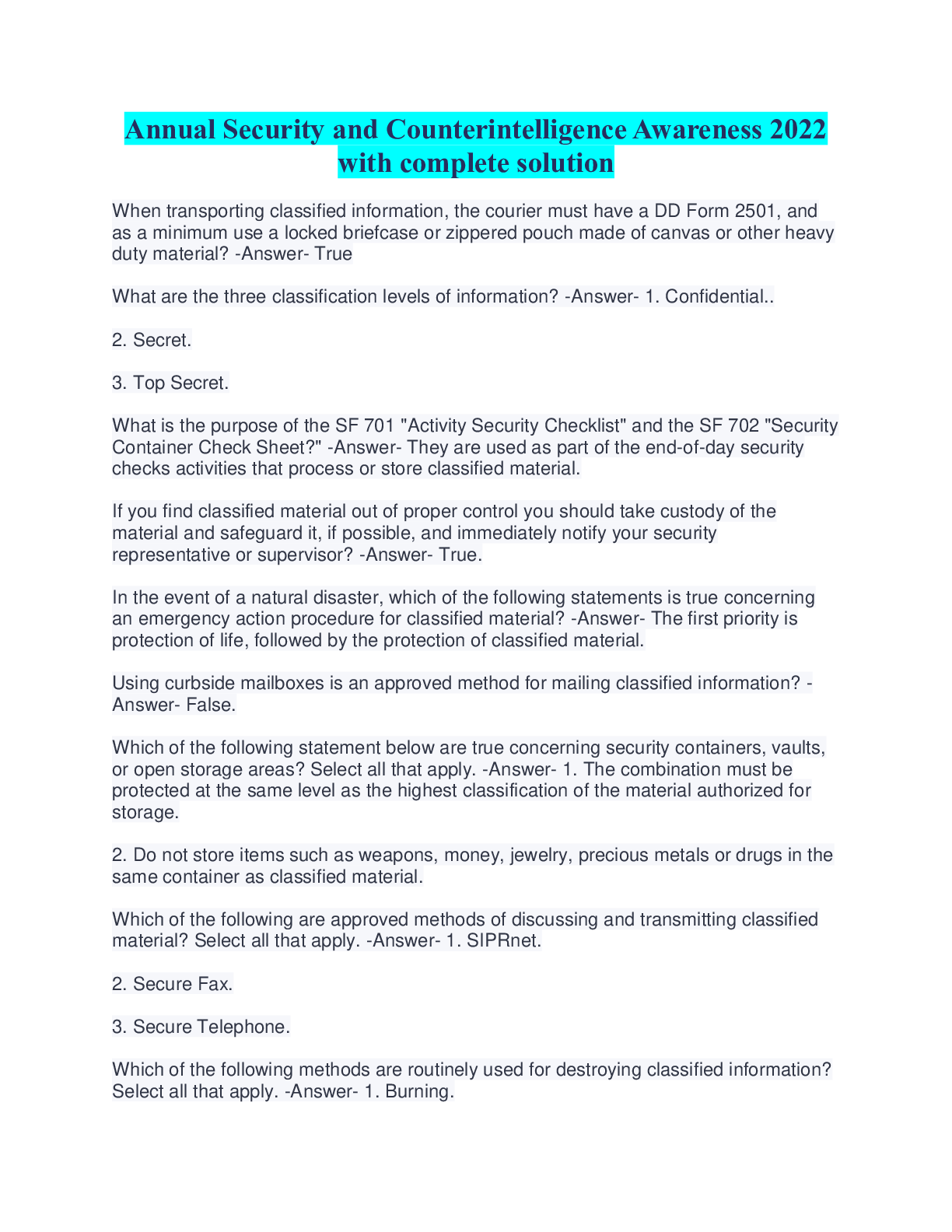

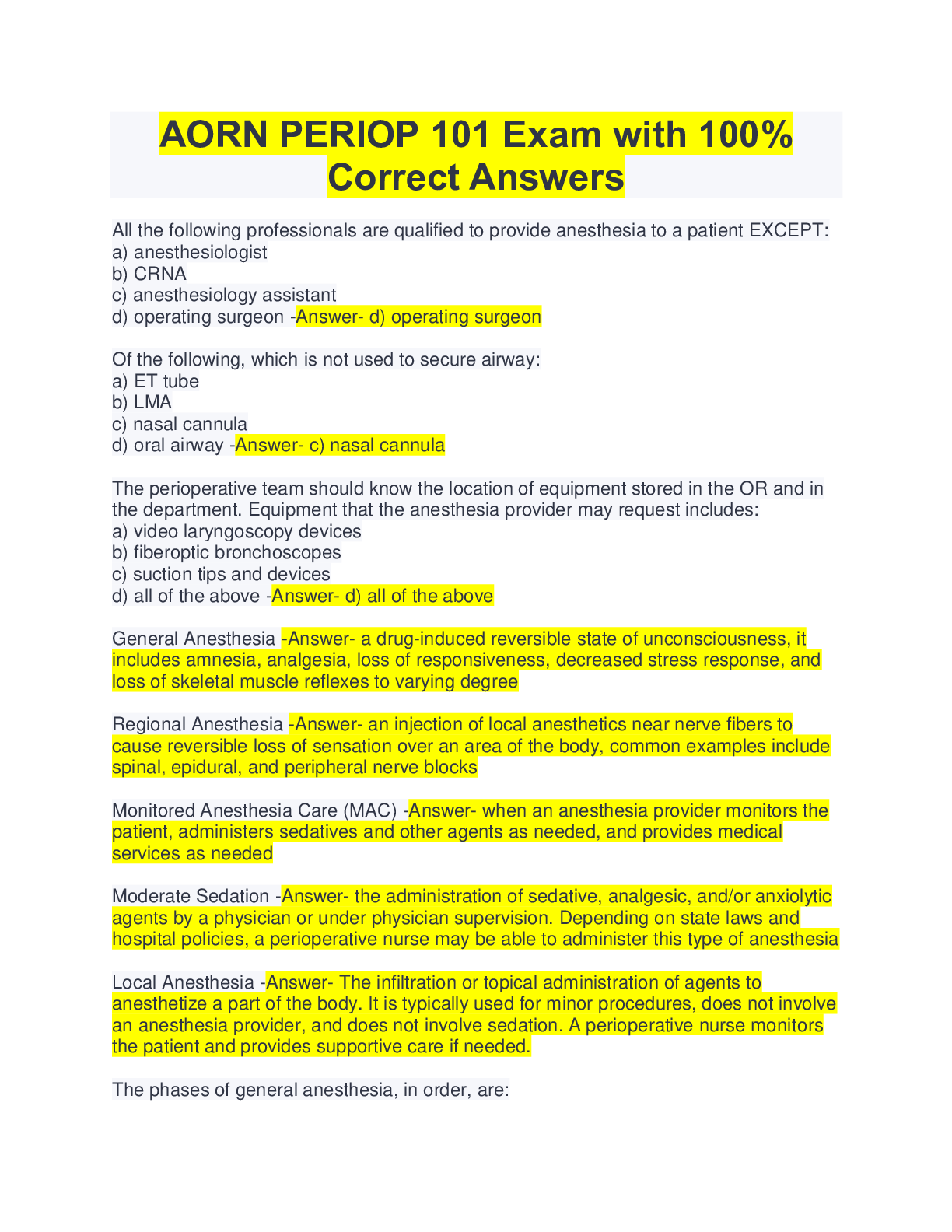







.png)

.png)


